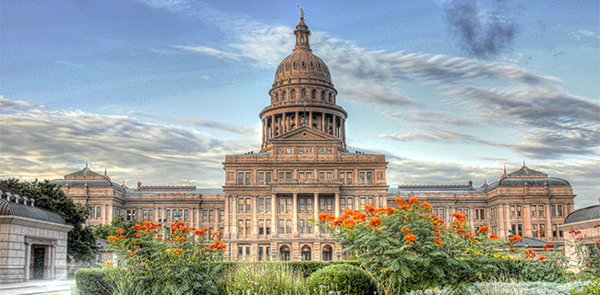- La Feria Community Holds Succesful Business Mixer Event
- Little Nashville to Take Place in Downtown Mercedes
- Lions Basketball Captures District Gold
- La Feria ISD Students Compete in Regional Chess Tournament
- Lions End First Half of 32-4A on a High Note
- La Feria ISD Held Another Successful Parent Conference
- Strong Appearance for Lions at Hidalgo Power Meet
- LFECHS Students Get to Meet Local Actress
- Students Participate in Marine Biology Camp
- Two LFECHS Students Qualify for All-State Band
Child Advocates Challenge Tax Cuts for Top Earners
- Updated: May 15, 2015
by Eric Galatas/TNS

The Texas House of Representatives has passed HB 31 and HB 32, which call for nearly $5 billion in sales and business tax cuts. The bills’ sponsors say the measures will save a family of four $172 a year. Critics argue the state needs to invest surpluses in children and infrastructure. Photo: Texas Sunset Advisory Commission.
AUSTIN, Texas – The Texas House passed nearly $5 billion in sales and business tax cuts earlier this week. Proponents say the move will boost the economy and put an additional $172 into a family of four’s pockets. Critics warn tax cuts mean reduced funding for public schools, health care and social services this year and in the future.
Texas already ranks among the 10 lowest-taxed states, said Patrick Bresette, executive director of the Children’s Defense Fund, adding that there are better ways to invest state surpluses.
“I think it’s very irresponsible for our leaders to be talking about tax cuts when child well-being in Texas ranks 43rd nationally,” he said. “The fact that we have money to spend right now means we should be investing it in our kids, our families and infrastructure.”
Bresette was citing a report from the Annie E. Casey Foundation that measured childhood economic, education, health, family and community well-being. You get what you don’t pay for, he said.
A recent study by the Kaiser Family Foundation ranked Texas 48th in state spending per resident.
Public interest groups argue that it’s bad strategy to choose tax cuts over investments that could bring billions of federal health-care dollars into the state.
The House cuts were put forward by Rep. Dennis Bonnen, R-Angleton. Bresette said 17,000 of Bonnen’s constituents lack health insurance, leaving county homeowners on the hook to pay almost $20 million a year to offset the cost of patients who can’t pay.
“These kinds of tax cuts that we see are actually going to benefit not those who need it the most but actually those who probably don’t,” he said. “A good 40 percent of the benefit of these tax cuts goes to the top fifth (of) earners in the state.”
Bresette said accepting federal health-care funding would dramatically reduce the number of the state’s uninsured, and would take a greater burden off taxpayers than sales tax cuts and cuts for businesses.
The House bills, HB 31 and HB 32, could be heard by the Senate as early as next week.
The KFF report is online at kff.org. The AEC report is at datacenter.kidscount.org.


